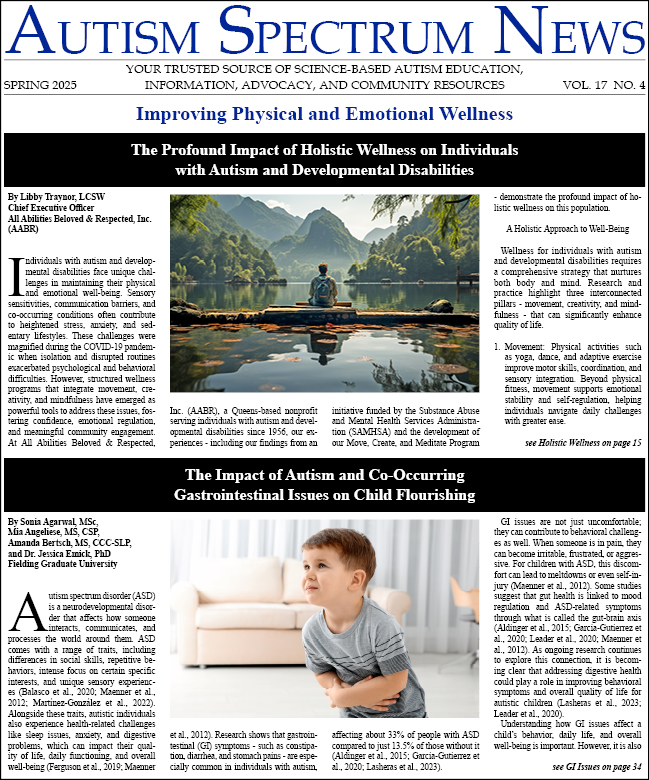-
Creating a Win-Win When Hiring People with Autism: How One Small Company Made it Work
A wave of high school and college graduates with talent, ability, and a tremendous capacity to contribute are hitting the job market but they are not getting hired. Recent statistics show that 75% of people with autism spectrum disorders are either unemployed or under employed. Many of those that...
-
The Daniel Jordan Fiddle Foundation’s “NYC Overload Project” Creates Employment for Singer/Songwriters
Envisioning and then creating innovative employment opportunities for adults living with Autism has always been a hallmark of The Daniel Jordan Fiddle Foundation’s mission. Last spring, while attending a performance by participants from The Miracle Project New York, the seeds of another new...
-
Employment for Persons on the Autism Spectrum: Examination of the State of the Field and the Path to Pursue
Despite evidence of the potential of individuals with autism to perform competitive jobs, employment rates for people on the spectrum remain extremely poor. Approximately 75% of adults with autism are unemployed or underemployed (Autism Society, 2011; Van Laarhoven & Winiaski, 2012). In 2013,...
-
Finding the Right Employment for Individuals with Autism Spectrum Disorder
Locating a place of employment is one of the most prevalent challenges for an individual with Autism Spectrum Disorder (ASD). In fact, according to a study conducted in 2010 by the Bureau of Labor Statistics, only 21% of all adults with disabilities participated in the labor force as compared with...
-
Disclosing an ASD Diagnosis: There is Another Option
You are on the spectrum and searching for jobs. You’ve prepared your resume, practiced interview skills, written cover letters, applied for jobs. You also might have considered whether or not to disclose your diagnosis. If you were diagnosed as a child, then, growing up everyone around you...
-
Cut Out for Him: A Father on His Son’s Employment Future
My 15-year-old son Alex (diagnosed PDD-NOS) goes to a special-needs school where some students are old enough to work. A few years ago Alex’s teacher told me about when she approached a local thrift shop about students volunteering there. “We don’t hire the handicapped,” the clerk...
-
How (and How Not) to Work with Employees with Autism or Asperger’s Syndrome
Imagine that you are a young person with Asperger's Syndrome. You leave home and go off to college. Happily, you find that your new school is quite able to accommodate your needs (provided you advocate for yourself, of course). Whether it is an alternative location and extra time for testing, a...
-
Improving Employment Outcomes for Individuals with Autism
In 2013, a study published by Professor Paul Shattuck, then at Washington University, reported on the outcomes for young adults on the autism spectrum. From Shattuck’s study, we learned that just over half (53.4 percent) of the young adults on the autism spectrum surveyed had ever worked for pay...
-
Integrating Special Interests and Passions for Successful Employment
As the 1 in 88 age out of the public school system in the US, autism service providers and organizations are questioning how to best meet the workplace needs of adults of all ages with autism spectrum disorders. As a journalist diagnosed on the autism spectrum myself, I have had my fair share of...
-
Jobs That Teach Employers and Employees
Jewish Child Care Association’s Compass Project helps young adults with special needs identify career and educational directions and foster friendships through socialization programs. It also encourages participants to pursue their dreams. Compass staff helps clients develop job readiness skills,...




